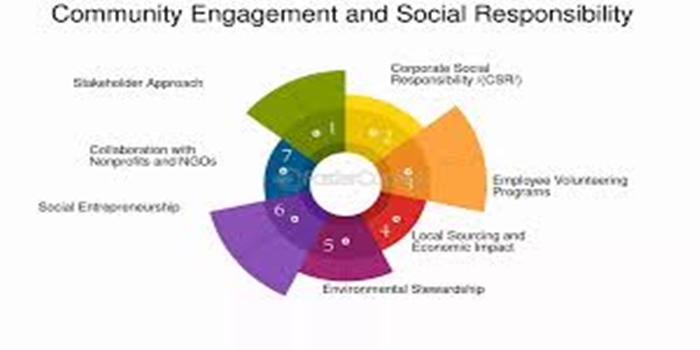In this article, we discussed civic engagement and social health, how civic engagement enhances social health, how social health influences civic engagement, the link between civic engagement and social health.
Definition
Civic engagement is the act of individuals or groups participating in activities that promote the common good and quality of life in their communities, ranging from voting and volunteering to participating in community design and advocating for social issues.
Social health refers to the collective well-being of a community or society, characterized by high levels of social trust, cohesion, and mutual support, which can be strengthened by civic engagement.
How Civic Engagement Impacts Social Health:
Individual Benefits
Enhanced Social Connections:
Civic participation broadens social networks, creating stronger support systems and combating feelings of isolation.
Improved Mental Health:
Engaging in civic activities is linked to lower stress, anxiety, and depression, fostering a greater sense of purpose and well-being.
Greater Sense of Purpose and Belonging:
Participation provides individuals with a shared identity and connection to their community, which are crucial for positive mental health.
Increased Resilience:
Civic engagement helps individuals build resilience, improving their ability to cope with personal and societal challenges.
Development of Life Skills:
Active citizens often develop valuable skills like communication, planning, decision-making, and leadership, enhancing personal growth.
Community Benefits
Stronger Communities:
High levels of civic participation lead to a stronger sense of community, greater cohesion, and more effective community organizations.
Improved Community Health:
Civically engaged communities tend to have better overall health outcomes, including lower rates of disease and improved access to health resources.
Healthier Environments:
Civic involvement can drive awareness and action to address unhealthy conditions in communities, promoting healthier living environments for all.
Increased Civic Resources:
Through participation, citizens can influence local decisions that impact community resources, such as access to healthy food, job opportunities, and public services.
How Civic Engagement Fosters Social Health
Fosters Social Capital:
Civic actions, like volunteering or voting, build social capital—networks of trust and cooperation that benefit the entire community.
Promotes Collective Action:
By working together on civic issues, individuals and groups can achieve shared goals, addressing community challenges more effectively.
Creates a Positive Cycle:
The positive experiences and relationships formed through civic engagement can lead to increased well-being, which in turn encourages further participation.
How Social Health Influences Civic Engagement
Social Capital:
Strong social networks, a key component of social health, build “social capital”. This includes trust and the ability to cooperate for mutual benefit, which are essential for collective action and effective civic participation.
Sense of Community:
Socially healthy individuals often have a stronger sense of community. This connection can inspire participation in local activities and a desire to contribute to the well-being of the community.
Mental & Emotional Well-being:
Engagement in civic activities like voting or volunteering has been shown to improve psychological health. It can lower stress, anxiety, and depression, and provide a sense of meaning and purpose, which are all facets of social and emotional health.
Empowerment:
For socially excluded groups, civic engagement can be a form of liberation and a pathway to developing critical awareness about societal dynamics and injustices. This newfound understanding and confidence can further fuel their social and civic participation.
The Reciprocal Relationship
The relationship between social health and civic engagement is not one-sided; it is a complex, reciprocal relationship.
Civic engagement improves health:
Participating in civic life can enhance community health by broadening social connections, fostering social support networks, and increasing opportunities for activities that benefit health.
Health conditions can hinder engagement:
Poor health, whether physical or mental, is linked to reduced civic engagement. Factors like poverty, stress, and lack of adequate social support can all impede an individual’s ability to participate in public life.
The Link Between Civic Engagement and Social Health:
Builds social capital:
Participating in civic activities like volunteering and voting fosters social connections, trust, and cooperation, which are essential components of social capital.
Enhances well-being:
Engaging in civic life is associated with improved psychological well-being, including lower stress, anxiety, and depression.
Promotes healthy behaviors:
Civic engagement can decrease risky behaviors in adolescents, such as substance abuse, poor diet, and delinquency.
Increases access to resources:
Activities like voting can influence decisions about community resources, such as access to healthy food and employment opportunities, thereby impacting health outcomes.
Fosters collective action:
Civic engagement provides a framework for collective action to address public health issues and advocate for healthier communities and policies.
How health influences civic engagement:
Motivates action: People with health challenges may become more civically involved to address the root causes of their conditions through collective action.
Supports participation: Healthier individuals are more able to participate fully in civic life.
The reciprocal relationship:
The link is bidirectional and interconnected; health and civic engagement reinforce each other.
A robust civic environment contributes to a healthier populace by fostering environments that support social connectedness and well-being.
Conversely, societies with greater health equity can cultivate stronger civic engagement, with entities like primary care systems playing a role in fostering both.
Conclusion
Civic engagement goes beyond politics and involves showing up for your community, values, and future. It includes actions like voting, volunteering, and even simple acts of kindness, all of which help build a stronger and more connected society.

